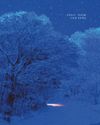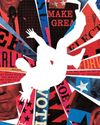
Asecret appointment exists between past generations and our own," Walter Benjamin wrote. "Our arrival on earth was expected." At pivotal moments, the philosopher argued, voices from the past reach out to us with prophetic force, escaping oblivion as a result. The past is not a fixed, eternal image; it is shaped by present concerns.
A few years back, Will Crutchfield, the artistic director of the Teatro Nuovo opera company, happened upon the name of Carolina Uccelli, a Florentine composer, singer, and poet who lived from 1810 to 1858. Her opera "Anna di Resburgo" had its premiere in Naples, in 1835, and then dropped from sight. The idea that a woman had gained a foothold in the otherwise all-male world of Italian operatic composition intrigued Crutchfield, and he got hold of the score. Convinced that it merited a second chance, he brought it to Teatro Nuovo. A pair of performances last month, at Montclair State University and at Jazz at Lincoln Center, proved him emphatically right. "Anna' is a formidable achievement for a composer in her mid-twenties. It feels like the slightly overstuffed but hugely promising early work of a major voice. The fact that Uccelli never completed another opera shows the extent to which musical history is influenced by forces that have little to do with innate talent.
This story is from the August 12, 2024 edition of The New Yorker.
Start your 7-day Magzter GOLD free trial to access thousands of curated premium stories, and 9,000+ magazines and newspapers.
Already a subscriber ? Sign In
This story is from the August 12, 2024 edition of The New Yorker.
Start your 7-day Magzter GOLD free trial to access thousands of curated premium stories, and 9,000+ magazines and newspapers.
Already a subscriber? Sign In

YULE RULES
“Christmas Eve in Miller’s Point.”

COLLISION COURSE
In Devika Rege’ first novel, India enters a troubling new era.

NEW CHAPTER
Is the twentieth-century novel a genre unto itself?

STUCK ON YOU
Pain and pleasure at a tattoo convention.

HEAVY SNOW HAN KANG
Kyungha-ya. That was the entirety of Inseon’s message: my name.

REPRISE
Reckoning with Donald Trump's return to power.

WHAT'S YOUR PARENTING-FAILURE STYLE?
Whether you’re horrifying your teen with nauseating sex-ed analogies or watching TikToks while your toddler eats a bagel from the subway floor, face it: you’re flailing in the vast chasm of your child’s relentless needs.

COLOR INSTINCT
Jadé Fadojutimi, a British painter, sees the world through a prism.

THE FAMILY PLAN
The pro-life movement’ new playbook.

President for Sale - A survey of today's political ads.
On a mid-October Sunday not long ago sun high, wind cool-I was in Harrisburg, Pennsylvania, for a book festival, and I took a stroll. There were few people on the streets-like the population of a lot of capital cities, Harrisburg's swells on weekdays with lawyers and lobbyists and legislative staffers, and dwindles on the weekends. But, on the façades of small businesses and in the doorways of private homes, I could see evidence of political activity. Across from the sparkling Susquehanna River, there was a row of Democratic lawn signs: Malcolm Kenyatta for auditor general, Bob Casey for U.S. Senate, and, most important, in white letters atop a periwinkle not unlike that of the sky, Kamala Harris for President.